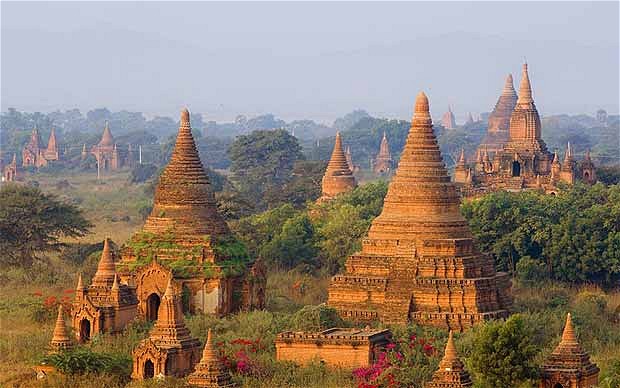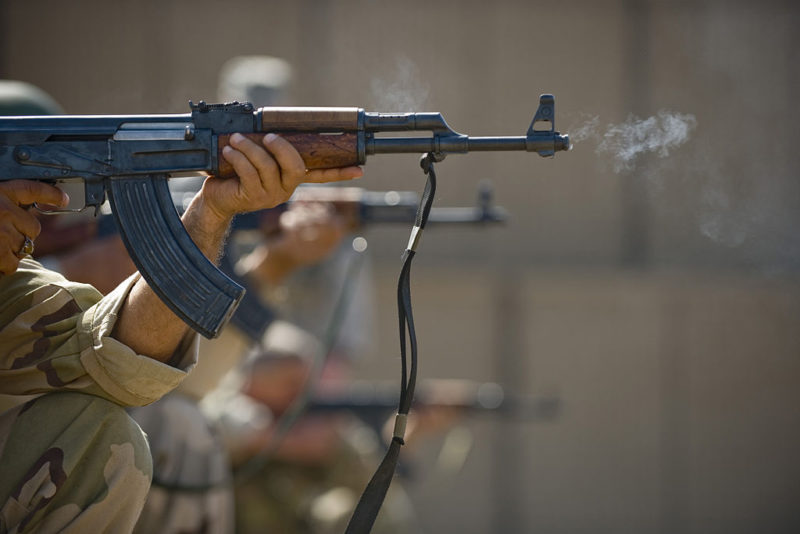Political discussion about Burma has revolved around the democratic transition since the general election of 2010 and the installation of a nominally led civilian government in 2011. Largely ignored, however, is the practice of apartheid and institutionalized genocide supported by this pseudo-democracy. Further, democratic and human right supporters such as Canada, the U.S. and the EU have failed to pressure the Burmese government to amend their gruesome policies and protect the Muslim minority, currently on the verge of either extinction or extremism.
For Rohingya Muslims, the State of Burma, also known as Myanmar, is one of the most dangerous places in the world. Since ethnic violence erupted in 2012, hundreds of Rohingya have been slaughtered, and an estimated 200,000 have fled their homes. Among the most disturbing realities however is growing support for the 969 Movement among the Buddhist majority and the governing coalition, led by President Thein Sein. The 969 Movement, spearheaded by a Buddhist monk who refers to himself as the “Burmese bin Laden,” is an extremist anti-Muslim movement with the objective of eradicating the Muslim population in Burma. Yet, asked about the movement and its goals, President Thein Sein regards it as “a symbol of peace,” and their leader as “son of Lord Buddha.”
Genocide Watch, an organization dedicated to predicting, preventing and stopping forms of mass murder, has classified the Rahkine State of Burma in a Genocide Emergency, and for good reason. In a recent report by Fortify Rights, an international human rights group, government documents were leaked to the public. These reports make it clear that the government of Burma is systematically and intentionally oppressing the 1.33 million Rohingya within the country. Beyond denying them citizenship, the Rohingya face restricted movement policies, a 2-child policy, forced birth control, marriage restrictions and unannounced “spot checks,” leaving the Rohingya families in physical, financial, and emotional agony.
These revelations only add to a long list of state sponsored brutality. A report supported by the UN High Commissioner for Human Rights states that at least 48 Rohingya Muslims were killed in 2 separate attacks during the month of January earlier this year. Although the government refuses to acknowledge this violence, adding to the notion that those who attack Muslims in Burma are quietly praised, the report also included the discovery of at least 10 severed Rohingya heads floating in a water tank. Likewise, in a separate incident last year, a Buddhist mob massacred young students and their teachers while police officers and bystanders stood by applauding the gang’s actions. Though these events have been documented and given limited attention, forced child labor, better characterized as slavery, arbitrary arrest and detention, and physical and sexual abuse are silently occurring on a daily basis.
Going back 6 years, the international community condemned the government of Burma for violating basic human rights and inducing regional instability. At this point in time, the military junta was arbitrarily arresting political opponents, notably Aung San Suu Kye, limiting international humanitarian assistance, and oppressing the Muslim minority. However the release of political prisoners has created a favorable situation for the current government. After scantily appeasing concerned countries, Canada and other nations have lifted economic sanctions previously imposed on Burma. Specifically, trade between Canada and Burma during 2011 amounted to less than 1 millions dollars. By 2013 trade between the two countries amounted to more than 16 millions dollars. Similarly, blocking all imports and only exporting a total value of approximately 9.7 million dollars 2010, the United States lifted most sanctions in 2012, and by 2013 total trade surpassed 175 million dollars. Given such revenue, the government’s ability to encourage their barbarous militia increased while it kept the Buddhist majority subdued.
Through lifting the Burmese sanctions, developed nations have lost the ability to press the current government to address the country’s humanitarian crisis. Understandably hesitant and devoid of strong incentives, NATO aligned countries lack the domestic pressure to intervene and hold the Burmese government accountable for supporting an obscure genocidal process. However, there may be serious long-run consequences.
Earlier this month, Al-Qaeda leader, Ayman al Zawahiri, announced his intention to launch an active jihadist cell in Burma to combat aggression against Muslims in the region. Though publicly condemned by the Burmese Muslim Association (BMA), marginalized Muslims in Burma cannot exercise restraint and fortitude forever. Remaining unchecked and unpunished, Thein Sein’s actions can incite a massive number of disgruntled and hopeless Muslim individuals to rise up. Hatred and violence against this ethnic minority, along with insufficient access to medicine, food and other basic life sustaining necessities, are inevitably threatening the very existence of Rohingya people in Burma. Speaking with a degree of expertise and experience in a conference at the London School of Economics in April, Prudentienne Seward, a survivor of the Rwandan Genocide, said “The United Nations has taken 20 years to apologize for its failure to recognize and prevent the Rwandan genocide; the international community should not repeat the same mistake in Myanmar.”
Though pundits criticize the effectiveness of economic sanctions on regime change, Canada, the United States, and the EU must not cooperate with an administration that is enabling the extinction of an ethnicity. Looking at Cambodia, Rwanda, Bosnia, and Darfur, it is time for the international community to act preemptively and multilaterally to save lives and prevent another infamous event. Christopher Abbott





